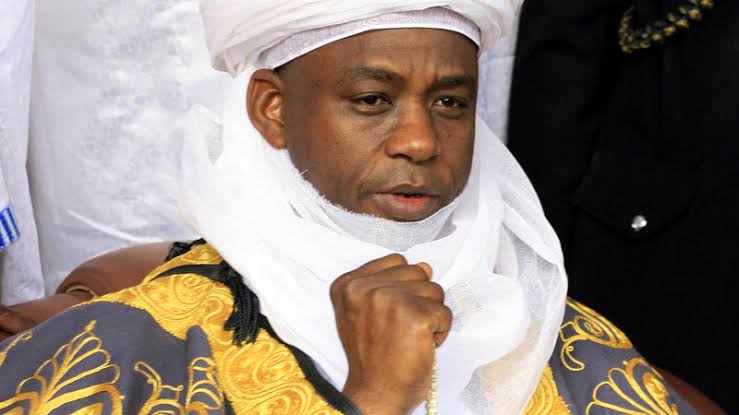
By Omolade Adegbuyi and Ologeh Joseph Chibu
President Bola Ahmed Tinubu has been asked immediately to rise to the historic duty of putting an end to the marginalisation of Itsekiri people in the oil and gas industry.
The Itsekiri produce the largest volume of oil by any ethnic group in Africa yet the most repressed and under-represented in Nigerian oil and gas industry.
The Nigerian Human Rights Community, (NHRC), a coalition of 130 civil society and community based groups in Nigeria, which concluded a weeklong environmental tour of the Niger Delta said it has the responsibility to alert the President on the brewing discontent and rage especially among the Itsekiri people on their marginalisation and repression by successive governments.
The rights group said interestingly, the Itsekiri people overwhelmingly support the Government of President Tinubu and appear to believe he would address their fears based on Tinubu’s past history and contributions to liberty and democracy in Nigeria.
‘The marginalisation of Itsekiri has continued and it is taking even the worse dimension’ the group said in its preliminary report signed by its officials, Taiwo Adeleye and Dr Akande Abiola.
The group described the situation as a National Security threat that should be addressed to avoid a major crisis in the Niger-Delta. The problem has been compounded by the annexation of Itsekiri territories and the award of the protection of oil pipelines in the Itsekiri ancestral land to elements that had in recent past fought Itekiri people with sophisticated weapons describing the development as ‘heartless and dangerous provocation.’ The NHRC said the Itsekiri on the other hand have offered unalloyed loyalty especially to the current Government led by President Tinubu but are worried about the continuation of their deplorable situation in the hands of their oppressors. The NHRC said the Itsekiri produce the highest crude oil from a single indigenous community in Africa but have been constantly pushed to the backwaters by administrators of the oil and gas industry.
The group said the 1.5m Itsekiri people spread in Delta and Edo States are beginning to see themselves as outcasts in the management and distribution of power, economy and political power in Nigeria. The group said the exploitation of oil producing communities is partly responsible for the unstable production of oil in Nigeria adding that there won’t be peace unless there is justice. At present, the group said, Itsekiri working in oil companies including the Nigerian National Petroleum Development Company, (NNPC) are being targeted for exclusion and marginalization from strategic positions which seem to have been reserved for particular ethnic groups most of who come from non-oil producing states. The group accuses the current GMD NNPC and Bala Wunti of fueling the repression of oil producing communities by seeking to have absolute control on the NNPC affairs. Throughout our visits to the Niger Delta, one this is clear: The Itsekiris’ are unhappy with the Nigerian State. They are a non-violent ethnic group that are increasingly being pushed to the extreme, the Nigerian Human Rights Community said.The rights coalition said the development is a time bomb that should not be allowed to explode.
‘There is no ethnic group in Nigeria that can accept what is going on in Itsekiri land. It is the worst form of exploitation and oppression. The Itsekiri are ethnic minorities but they produce the largest amount of oil in Nigeria, yet the most deprived.’ The coalition said oil companies working in the Niger Delta have failed to live up to the expectations of Itsekiri people while the NNPC continues to sidetrack people of Itsekiri extraction from key positions. ‘There is a limit to which this injustice can be tolerated. There is a flash point of crisis brewing like it happened in Ogoni land in 1992. History may repeat itself unless the Federal Government addresses the problem swiftly and decisively. The group said since 1960, no Itsekiri person has been appointed as the Minister of Petroleum and that the NNPC seems to have designed a policy that ensures no Itsekiri person becomes the Group Managing Director even though Itsekiri land represents the most potent force in Nigerian oil production quota. The group claims this move exemplifies a deliberate pattern of marginalization against the Itsekiri people within the oil and gas sector.
‘While the Itsekiri are the earliest to obtain Western education dating back to the 16th century in the Niger Delta, offering a long tradition of producing highly educated people in various fields, the people nevertheless remain at the end of the stick in terms of strategic appointments in oil and gas industry. The group said Itsekiri, through the late Pa Alfred Rewane led the campaign against military rule for the democracy being enjoyed by Nigerians today. The Itsekiri ethnic group has historically been one of the largest oil-producing communities in Nigeria and Africa. The group highlights the Itsekiri substantial infrastructure in the sector, including two gas depots and five floating stations in Edo State, predominantly located in Itsekiri communities. Additionally, they note that several NNPC and Shell filling stations, Chevron Flowstation operate within Itsekiri regions, reinforcing the community’s strong presence in Nigeria’s oil economy. The coalition said Itsekiri territories remain polluted due to years of exploitation without compensation added with the deprivation of people of Itsekiri ethnic group from top positions in oil and gas concerns.
It said Itsekiri deserve no fewer than 50billion dollars in compensation having contributed the largest oil and gas input to the Nigerian economy apart from the urgent need for Itsekiri inclusion into the top echelon of oil and gas industry in Nigeria. The rights group said the Itsekiri asserts that greater representation of their people in high-ranking positions within NNPC would reflect the community’s contributions and stature in the industry, calling for more inclusive decision-making that acknowledges the pivotal role of the Itsekiri people in Nigeria’s oil industry.





